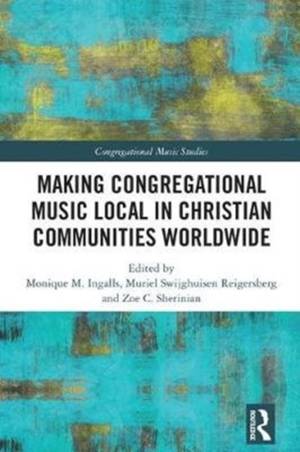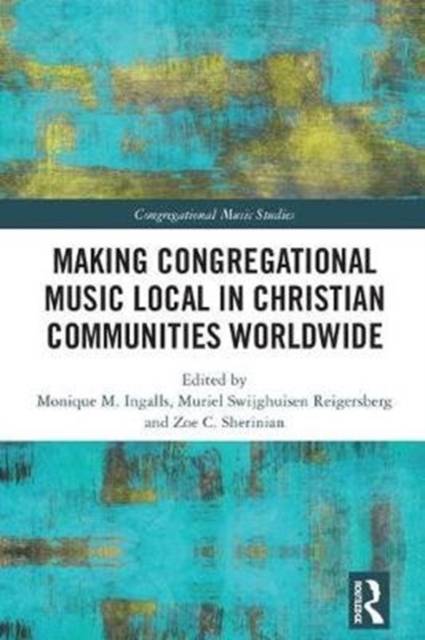
- Retrait gratuit dans votre magasin Club
- 7.000.000 titres dans notre catalogue
- Payer en toute sécurité
- Toujours un magasin près de chez vous
- Retrait gratuit dans votre magasin Club
- 7.000.0000 titres dans notre catalogue
- Payer en toute sécurité
- Toujours un magasin près de chez vous
Making Congregational Music Local in Christian Communities Worldwide
Description
What does it mean for music to be considered local in contemporary Christian communities, and who shapes this meaning? Through what musical processes have religious beliefs and practices once 'foreign' become 'indigenous'? How does using indigenous musical practices aid in the growth of local Christian religious practices and beliefs? How are musical constructions of the local intertwined with regional, national or transnational religious influences and cosmopolitanisms?
Making Congregational Music Local in Christian Communities Worldwide explores the ways that congregational music-making is integral to how communities around the world understand what it means to be 'local' and 'Christian'. Showing how locality is produced, negotiated, and performed through music-making, this book draws on case studies from every continent that integrate insights from anthropology, ethnomusicology, cultural geography, mission studies, and practical theology. Four sections explore a central aspect of the production of locality through congregational music-making, addressing the role of historical trends, cultural and political power, diverging values, and translocal influences in defining what it means to be 'local' and 'Christian'. This book contends that examining musical processes of localization can lead scholars to new understandings of the meaning and power of Christian belief and practice.
Spécifications
Parties prenantes
- Editeur:
Contenu
- Nombre de pages :
- 278
- Langue:
- Anglais
- Collection :
Caractéristiques
- EAN:
- 9781138307650
- Date de parution :
- 07-03-18
- Format:
- Livre relié
- Format numérique:
- Genaaid
- Dimensions :
- 156 mm x 234 mm
- Poids :
- 589 g

Les avis
Nous publions uniquement les avis qui respectent les conditions requises. Consultez nos conditions pour les avis.





